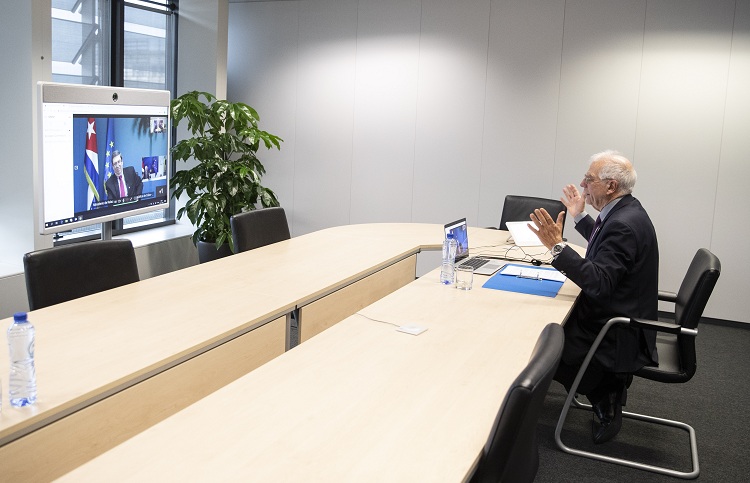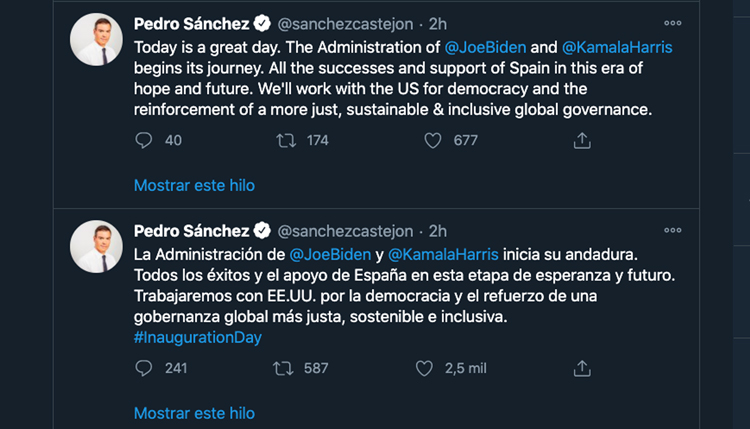The Diplomat
The members of the EU-Cuba Joint Council yesterday took stock of the implementation of the Political Dialogue and Cooperation Agreement between the European Union and Cuba (PDCA) and addressed the effects of the US embargo on the island.
The informal meeting was held by videoconference and was chaired by the EU High Representative for Foreign Affairs and Security Policy, Josep Borrell, and the Cuban Minister of Foreign Affairs, Bruno Rodríguez. Spain’s Minister of Foreign Affairs, Arancha González Laya, took part.
During the videoconference, the Joint Council took stock of the implementation of the PDCA and discussed Cuba’s efforts to reform its economy and the implementation of the new Constitution of 2019, which maintains socialism as an “irrevocable” model (although it allows a certain degree of market economy and private property under state control) and keeps the Communist Party as the “leading political force in society and the state”. The two sides also explored the priorities for future cooperation in the 2021-2027 period, including in the areas of economic modernisation and ecological transition in Cuba, and talked about bilateral trade and investment ties, and as well as the US embargo and its extraterritorial effects, as reported by the EU’s External Action Service.
This was the third meeting of the Joint Council, the last of which was held in Havana in September 2019. The Joint Council was established within the framework of the Political Dialogue and Cooperation Agreement between the EU and Cuba, which was signed by both parties on 11 March 2016 in the Cuban capital, and in whose promotion and approval the Spanish Government, chaired by Mariano Rajoy of the PP, played a very important role. The agreement replaced the previous EU Common Position, which made any agreement conditional on progress towards democracy on the island and in whose approval, in 1996, Spain, specifically the government of José María Aznar, also of the PP, had played a very important role.
The current agreement entered into force provisionally in November 2017 and its full application will only be possible once it has been ratified by all the EU Member States. At present, the only European partner that has not yet ratified it is Lithuania. Spain did so in 2018. In the framework of the PDCA, the EU and Cuba have initiated talks and strengthened commitments in areas such as human rights and unilateral coercive measures, among others.
Among these unilateral coercive measures is the US embargo, which was one of the issues addressed at yesterday’s meeting, on the very day that Joe Biden took office as President of the United States and, therefore, the end of Donald Trump’s mandate. Biden was vice president of the United States during the mandate of Barack Obama, who in December 2014 announced an agreement with the then president of Cuba, Raúl Castro, to re-establish diplomatic relations after more than half a century of rupture, a decision that was applauded by the Rajoy government.
Donald Trump, Obama’s successor and president of the United States until just yesterday, announced in February 2019 the cancellation of his predecessor’s policy towards Cuba and that he would only agree to negotiate a new agreement if concrete progress was made towards holding “free elections” and “the release of political prisoners”. This change in policy towards Cuba included support for the US trade and financial embargo on the island and the rejection of international requests for the US Congress to lift the embargo.







